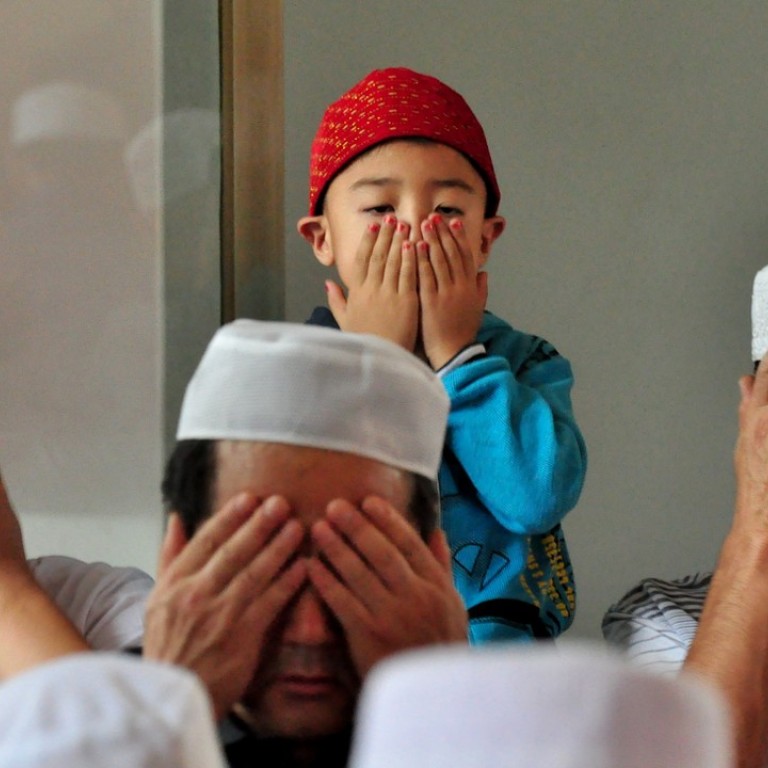
Muslim children in Chinese county banned from attending religious events over break
Youngsters also prohibited from reading scriptures in classes or in religious buildings, district education bureau says
Education authorities in a mostly Muslim county in northwestern China have banned schoolchildren from attending religious events over a winter break, as authorities step up control of religious education.
Pupils in Linxia county in Gansu province, home to many members of the Muslim Hui ethnic minority, are prohibited from entering religious buildings over their break, a district education bureau said in a notice published online.
They must also not read scriptures in classes or in religious buildings, the bureau said, adding that all pupils and teachers should heed the notice and work to strengthen political ideology and propaganda.
Reuters was unable to independently verify the authenticity of the notice.
A man who answered the telephone at the Linxia education bureau hung up when Reuters asked about the notice. A woman at the district education bureau declined to comment on the document’s authenticity.
Xi Wuyi, a Marxist scholar at the state-backed Chinese Academy of Social Sciences and an outspoken critic of rising Islamic influence in China welcomed the apparent move by the authorities.
With the notice, the county was taking concrete action to keep religion and education separate, and sticking strictly to education law, she said on the Weibo, the Chinese equivalent of Twitter.
New regulations on religious affairs released in October, and due to take effect next month, aim to increase oversight of religious education and provide for greater regulation of religious activities.
Last summer, a Sunday School ban was introduced in the southeastern city of Wenzhou, sometimes known as “China’s Jerusalem” due to its large Christian population, but Christian parents found ways to teach their children about their religion regardless.
Chinese law officially grants religious freedom for all, but regulations on education and protection of minors also say religion cannot be used to hinder state education or to “coerce” children to believe.
Authorities in troubled parts of China, such as the far western region of Xinjiang, home to the Turkic-speaking Uygur Muslim minority, ban children from attending religious events.
But religious communities elsewhere rarely face blanket restrictions.
Fear of Muslims’ influence has grown in China in recent years, sparked in part by violence in Xinjiang.
The Chinese-speaking Hui, who are culturally more similar to the Han Chinese majority than to Uygurs, have also come under scrutiny from some intellectuals who fear creeping Islamic influence on society.

